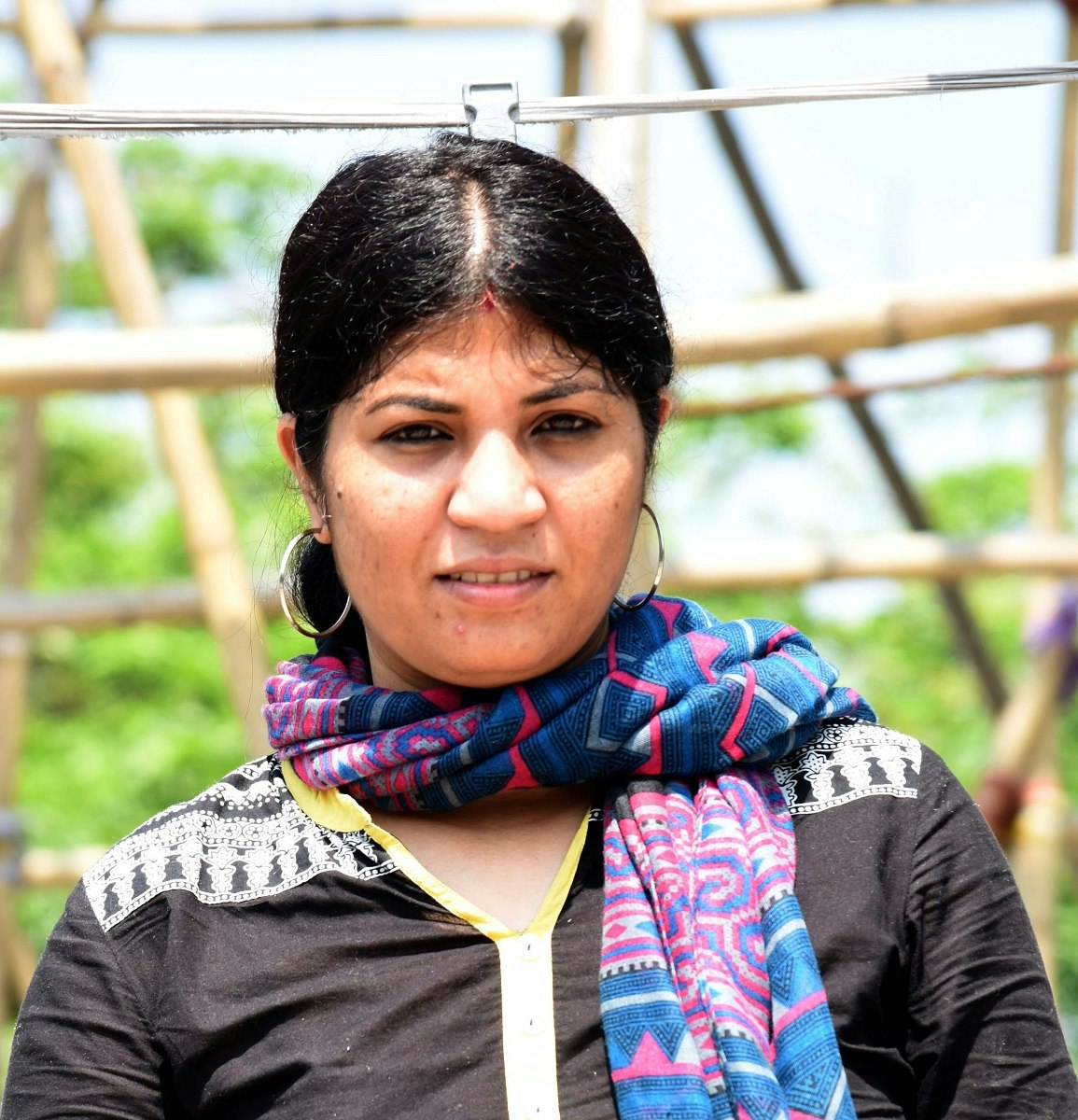Winner of the Whitley Award donated by The Shears Foundation in memory of Trevor Shears
noisy neighbours
Greater Adjutant Storks, or Hargila as they are known locally, have an image problem. These giant scavenger birds have a reputation as unwelcome neighbours with their noisy, messy and smelly nesting habits. With a global population of 1,200 mature individuals, 75% of which are found in Assam, the greater adjutant needs help to prevent degradation of their wetland habitat and the felling of nesting trees by landowners wishing to rid themselves of storks.
MOBILISING A MOVEMENT
The species nest in the same colonies year on year, but villagers’ propensity to cut nesting trees has decimated numbers. To restore populations, Purnima Barman of the NGO Aaranyak, is rallying the people of Assam’s Brahmaputra valley, turning bird haters into bird lovers. Working with landowners and a grassroots women’s group known as the ‘Hargila Army’, Purnima is changing perceptions and the number of nests has risen from just 30 in 2008 to over 150 today.
REVERSING THE TREND
Purnima’s next step is to scale up this success to four new districts in Assam and secure important wetland habitat. She plans to conduct research into the impact of wetland pollution and garbage consumption on stork health and reproduction. Alongside these studies, Purnima will help women to access training and develop textile businesses, and enthuse school children to instill a sense of commitment to these unusual birds.
With her award Purnima will:
- Work with 10,000 villagers, schools and government to increase the greater adjutant population; protect nesting sites and rescue fallen chicks
- Expand the Hargila Army, engaging 300 women with conservation and helping them to pursue sustainable livelihood and education opportunities
- Seek legal protection of wetland habitat home to the largest nesting colony of greater adjutants
- Use research findings to make recommendations for more environmentally-friendly waste disposal
Why it matters:
- Over 50 wetlands occur in the project site acting as a life-support system for other species
- Storks receive relatively little conservation attention
- Purnima is improving the livelihoods of 1,000 people and is giving marginalised women a voice
“The Hargila Army women are the conservation heroes of today!”
PROJECT UPDATE
2019 CONTINUATION FUNDING
Building a conservation movement for the unlikely Greater Adjutant Stork
India
£70,000 over 2 years
The Greater Adjutant Stork (locally known as ‘Hargilla’) is categorised as Endangered on the IUCN Red List, residing only in the states of Assam and Bihar of India and in Cambodia. There are an estimated 1,200 individuals remaining globally, with Assam harbouring 75-80% of the population. They are a creature of habit, making nesting colonies in the same large, tall trees year after year. However, these trees are outside the protected area network of India and mainly within populated villages where villagers often fell trees for wood and to rid themselves of these “dirty and smelly” birds. It is fair to say that the species needs a bit of a reputational overhaul.
With Continuation Funding, Purnima aims to replicate the success of her phenomenally successful work in Kamrup village, in a further 4 areas in Assam where storks are found. She will experiment with artificial nesting platforms so that the bird can raise their chicks in absence of suitable trees and importantly, change the attitudes and behaviours of villagers by encouraging them to join her conservation movement as stork supporters, with members benefitting from education and livelihood opportunities in sustainable horticulture. In addition, Purnima will collaborate with other scientists and Whitley Award alumni including Karen Aghababyan to develop a 10-year action plan to conserve the species and its wetland habitat, with government buy-in.



